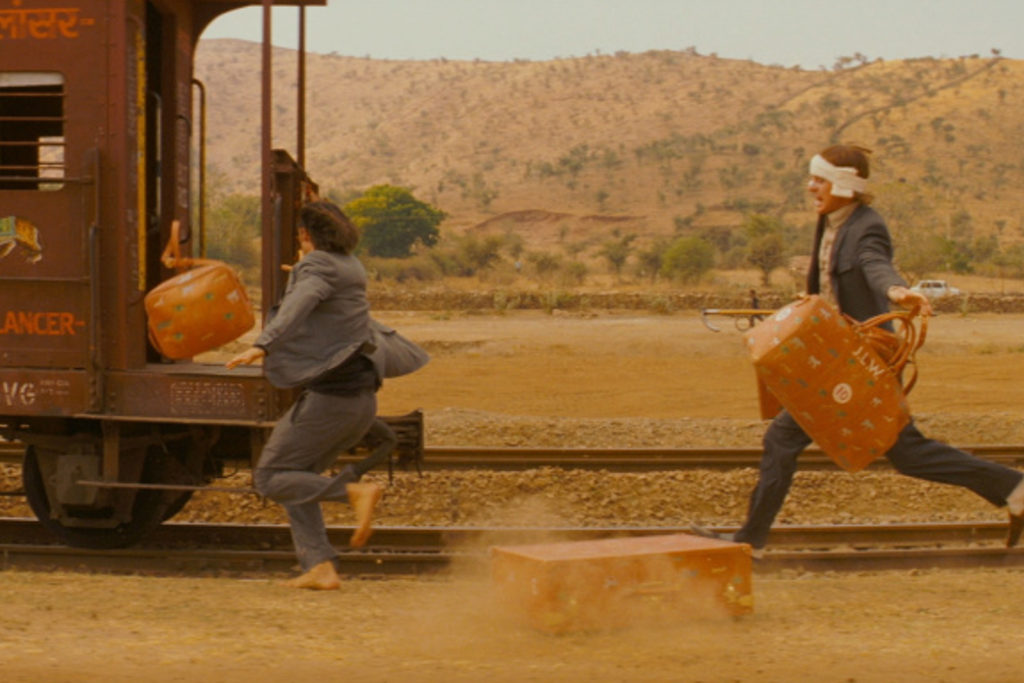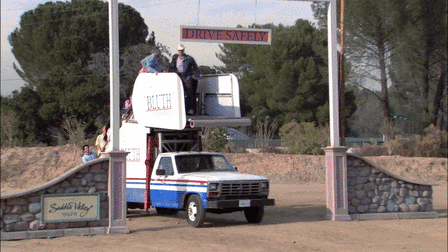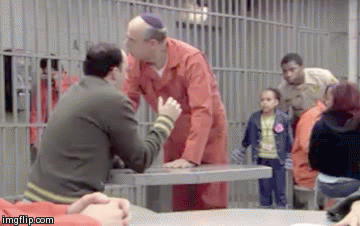How to Hypothetically Avoid a Hypothetical Ticket for Hypothetically Fare Evading, Hypothetically
The tough new anti-fare evasion measures being rolled out across Australia say more about our transport system than they do about delinquents. Here's everything you need to know.

If, like me, you’re a feckless money-sucking leech on decent taxpayers everywhere, you’re no doubt trembling in your boots at the Tough New Measures being heroically rolled out to curb the time-honoured practice of sneaking onto a bus or train without paying.
Fare evasion is one of the eternal bugaboos of state politics, matched only by bikies, “alcohol-fuelled violence”, and vaguely ethnic gangs as a quick and easy way to Get Tough On Something. The laws vary from state to state, but both Sydney and Melbourne have fare evasion rates somewhere north of 10%, costing both states between $80-120 million in lost revenue each year. And now state governments are on the warpath to get that money back, by making it harder and harder to bum a free lift.
(But you’re always gonna get some hop-ons.)

In NSW, the O’Farrell government responded to the rise in fare evasions by replacing most transport officers with actual police, restricting concession ticket availability at vending machines, and installing flashing lights that go off when a concession ticket is put through the gates. (Thus facilitating everyone’s favourite game: Look! It’s A Poor Person!) Turns out there’s no money spinner like treating everybody like a potential criminal — the government began crowing last week that almost 11,000 fines were issued last November, compared to just 2,300 in May. At $200 a pop, that’s a boost to state coffers of almost $1.75 million. Not bad for a month’s work.
The situation’s no better in Victoria, who introduced on-the-spot fines of at least $75 late last year, for people dastardly enough to not pay for the privilege of using that masterful feat of transport infrastructure, the myki system. If that doesn’t deter fare evaders, transit officers always have the option of man-handling students and fifteen-year old girls with no consequences. Understandably, Melburnians are increasingly electing to buy tram tickets rather than have beefy rent-a-cops kneel on their windpipes, with fare evasion down to its lowest level in five years.
Meanwhile in Queensland, they’re dealing with repeat offenders who don’t pay their fines by sending their broke asses to jail, where they will presumably earn back said fine-money by selling wine brewed in their cell toilets. Hopefully that can recoup some of the $96 million that the Sunshine State’s record-high number of prisoners have cost Queensland taxpayers since Campbell Newman took office and promised to get tough on crime.
Gotta spend that money you make from charging over $5 a bus ride somehow, I guess.
Poor People And Their Secret Piles Of Gold
But: why fare evade at all? Why not just stone up and pay the full fare like most people? Well, since more than one in ten travellers in Australia’s two largest cities are doing it, there must be a decent reason.
While a small portion of fare evaders are no doubt just sneaky ne’er-do-wells, the situation isn’t helped by state governments who don’t exactly make it easy for people without much money to get around. In NSW, for instance, people on an unemployment concession cannot buy a weekly ticket, the most popular ticket choice according to the Bureau of Transport Statistics (page 20) — because convenience is for rich people, apparently. In the same state, neither international nor part-time students are eligible for concession cards (despite the fact that literally one-half of the phrases “international student” and “part-time student” consists of the word “student”), a unique mindset that’s moved north of the border, too.
It can also be mega-confusing to work out which ticket to actually buy – in Sydney, the MyBus system relies on the customer calculating how many “sections” they’re travelling through every time they hop on a bus, effectively requiring people to carry three different kinds of bus ticket with them at all times. Got the wrong ticket and ride the bus a little longer than you’re allowed? That’s fare evading, apparently. Whee.

In Melbourne, meanwhile, inadequacies with the $1.5 billion myki system and its implementation have cost taxpayers millions: so far, failures include the early-expiration of four-year cards, a heap of equipment malfunctions (leading one in 11 fare evaders having their fines waved), the destruction of $15.7 million worth of cards and $14.9 million worth of equipment after the short-term cards and tram vending machines were scrapped, and a loophole that allows country commuters to buy a $6 myki for a $27 ticket, accruing a negative balance before chucking the ticket out.
Add all that up, and someone with little money to spare is pretty likely to jump the turnstile from time to time, or accidentally overstay their welcome – and get hit with a big fine for it.

The Bit That Saves You Money
So what to do, filthy peasant? Pay for tickets and go broke, or ride for free and get jacked by the Fuzz? Turns out there might be a third way.
Brigitte Garozzo is a co-admin of “Where Are The Transport Officers At?”, a Facebook page where people post sightings of transport officers and police at train stations and bus stops. It’s the social media equivalent of flashing your headlights at oncoming cars to warn of the speed camera around the corner – you probably feel guilty doing it, but you’re sure as hell thankful when someone else does.
The page doesn’t endorse fare evading — and Garozzo has a pretty good set of reasons for why they do what they do. “The fact is that our public transport is expensive, and there are lots of everyday people out there – apprentices, low income workers, students, pensioners – who are struggling to keep up with the cost of living in Australia, especially in the major cities where rent is among the most expensive in the world. Rich people can afford to drive, pay for transport and pay their fines without blinking an eye – it’s harder for the rest of us,” Garozzo told Junkee.
The page is also big on educating people about what they actually have to do if they’re caught without a ticket – and what they don’t have to do. Turns out, for instance, that a transport officer in Sydney has no right to ask you for ID, search your bag or detain you in any way; you can walk off the train or bus whenever you damn well please, and they can’t do squat. While transport officers do ask for ID and people usually comply, it’s a bluff – when someone feels vaguely guilty about having done the wrong thing, they’ll probably do whatever the stern-looking man in the uniform tells them to. Without a piece of ID, though, a transport officer has no way to issue you with a fine.
Word is spreading, too. An average of more than 2,200 people a month in Sydney just walk away from transit officers trying to fine them nowadays, up from just 27 back in May. Note, though, that transport officers are distinct from actual police – if a cop asks you for ID, you DO have to show it. “If there are police with them, we recommend you play it safe and cop the fine – they have full powers to basically brutalise you over a transport ticket,” Garozzo reckons.
Sadly, it ain’t so rosy down in Melbourne, where transit officers can legally detain you until police arrive to search your bag and person for ID. That kind of sucks, but it’s still good to know this sort of stuff in the four seconds between being asked for a ticket and being put in a chokehold.

Obviously, the best way to stay safe and solvent out in dem streets is to pay the correct fare every time, and we would never endorse fare evading because we’re Good People. But if you were to bone up on your rights on public transport in your home state (like NSW, Queensland or Victoria, listed here purely as examples of things that are states) or join that Facebook page we talked about, or sign this petition calling for cheaper public transport in Queensland — well there wouldn’t be a whole lot we could do to stop you, would there?
–
Alex McKinnon is a Sydney-based writer and journalist, and former editor of The Star Observer.
